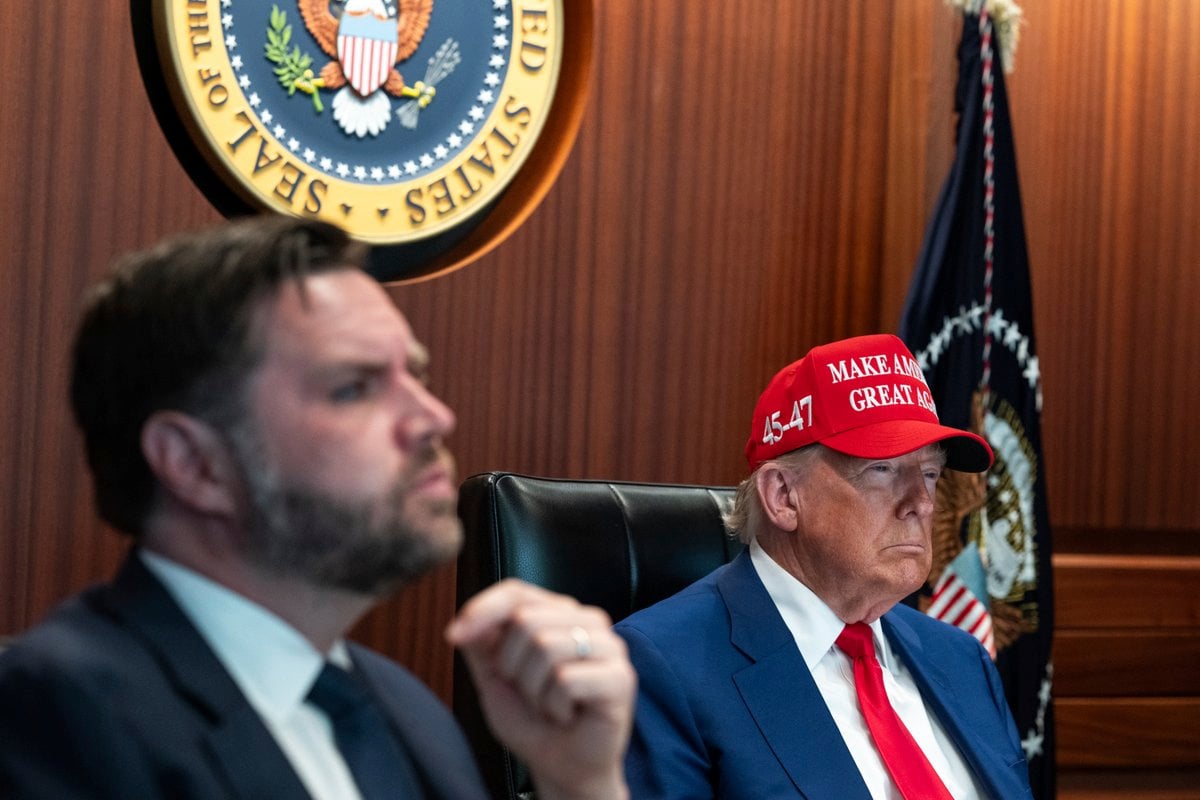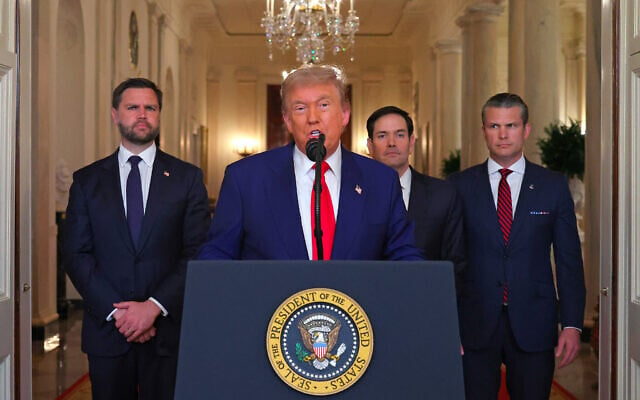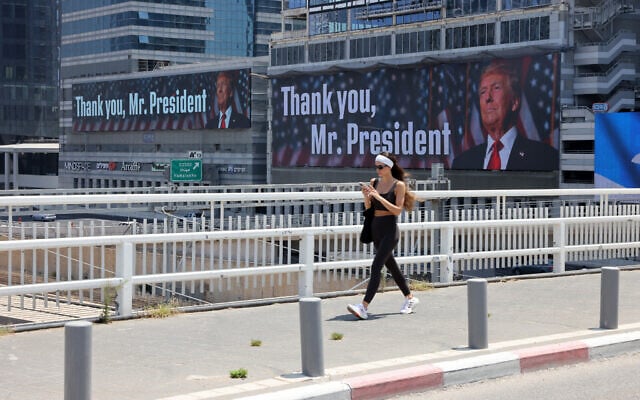



High-ranking US officials sought to draw a line on Sunday under Washington’s offensive action in Iran against the Islamic Republic’s main nuclear facilities, saying they did not want to expand the fighting and urging Tehran to return to the negotiating table in pursuit of diplomacy instead of preparing for war.
But the top Trump administration figures also warned that should Iran seek to retaliate for overnight strikes, the US would be forced to respond in kind, and the door to a diplomatic solution to the long-standing issue of Iran’s nuclear program would be shut.
“We’re not at war with Iran. We’re at war with Iran’s nuclear program,” Vice President JD Vance said in an interview on NBC’s “Meet the Press,” hours after Trump said he had “obliterated” Iran’s main nuclear sites with massive bunker-busting bombs.
“I think that we have really pushed their program back by a very long time,” Vance said, adding that although he couldn’t provide an official assessment of the damage, he believes it will be “many, many years before the Iranians are going to be able to develop a nuclear weapon.”
Prior to the Sunday morning strikes, the US identified that “Iran was producing highly enriched uranium that was only consistent with them wanting to build a nuclear weapon,” he said.
“There’s, of course, an open question about whether they were weeks away or whether they were months away…. They were way too close to a nuclear weapon for the comfort of the president of the United States, which is why he chose this action,” said Vance.
US Secretary of State Marco Rubio told Fox News’s “Sunday Morning Futures” program that Iran neglected to take previous rounds of negotiations with the US seriously, accusing Tehran of entering into “fake negotiations” in a bid to “play” Trump, but stressed that it was not too late to turn over a new leaf and begin again.
Vance, for his part, said that although the US initially felt the talks were somewhat productive, by mid-May, that was no longer the case.
“The Iranians seemed to be stonewalling the negotiations,” Vance said, asserting that that was “really the hidden story here.”
“The Iranians stopped negotiating in good faith, and that was the real catalyst” for the decision to attack, he said.
He appeared cautiously optimistic, however, that the strikes would bring about a chance for renewed diplomacy, saying Washington had received some “indirect” messages from Tehran since the strikes.
US Secretary of Defense Pete Hegseth told reporters at the Pentagon that Washington had also sent private messages to Tehran encouraging a return to negotiations.
Hegseth, like Vance, was careful to stress that the US was not seeking to impose regime change on Iran, calling the strikes “intentionally limited.”
But he warned that the US would respond to any Iranian aggression if necessary.
Vance, meanwhile, posited that the overnight strikes provide “an opportunity to reset this relationship, reset these negotiations, and get us in a place where Iran can decide not to be a threat to its neighbors, not to a threat to the United States.”
“If they’re willing to do that, the United States is all ears,” he said. “The Iranians can go down the path of peace or they can go down the path of this ridiculous brinksmanship of funding terrorism, of trying to build a nuclear weapon and that’s just not something the United States can accept.”
Rubio, likewise, said the US was willing to talk, and would even allow Iran to operate nuclear power plants, but not to enrich its own fuel.
“The Iranian regime should wake up and say ‘OK, if we really want nuclear energy in our country, there’s a way to do it.’ That offer’s still there, we’re prepared to talk to them tomorrow,” he told Fox News.
“Ultimately, they have to make a decision. It’s a very simple decision: if what they want is nuclear reactors so they can have electricity — there are so many other countries in the world that do that, and they don’t have to enrich their own uranium — they can do that,” Rubio added.
Asked whether the US would support Israel if it made a move on the life of Iran’s Supreme Leader Ayatollah Ali Khameini, Vance told NBC that such a decision would be “up to the Israelis,” as the US was not seeking regime change in Iran.
“We don’t want a regime change,” the vice president stressed. “We do not want to protract this… We want to end the nuclear program, and then we want to talk to the Iranians about a long-term settlement here.”
He reiterated that the US “had no interest in boots on the ground.”
The US targeted the Islamic Republic’s Fordo, Natanz, and Isfahan nuclear facilities in its overnight strikes. To do so, it employed 14 bunker-buster bombs, more than two dozen Tomahawk missiles and over 125 military aircraft, in an operation the top US general Dan Caine, chairman of the Joint Chiefs of Staff, said was named “Operation Midnight Hammer.”
The decision to involve the US directly in Israel’s war with Iran came after more than a week of strikes by Israel that damaged Iran’s nuclear facilities, eradicated the country’s air defenses, and took out many of its military brass and top nuclear scientists. Iran, in retaliation, has launched dozens of ballistic missile barrages at Israel, killing 24 people and wounding thousands more.


